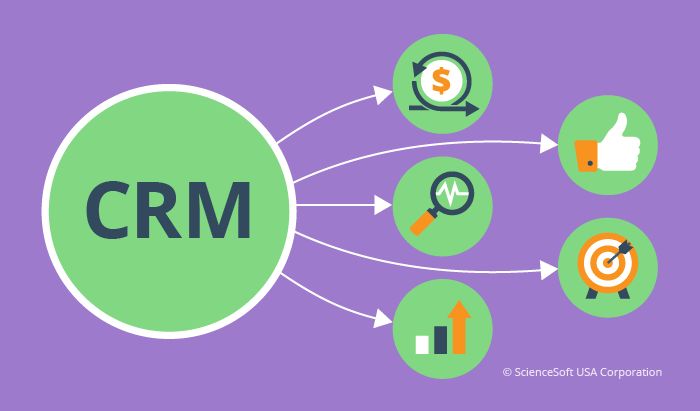In today’s competitive marketplace, small businesses must leverage Customer Relationship Management (CRM) systems to foster growth, maintain customer loyalty, and streamline operations. Implementing CRM effectively can be a game-changer, enabling businesses to gain deep insights into customer behavior, enhance communication, and ultimately drive sales. Here, we outline the best practices for small businesses to maximize the benefits of their CRM systems.
Understanding the Importance of CRM for Small Businesses
A CRM system is not just a tool; it’s a strategic approach to managing interactions with current and potential customers. By consolidating customer information and automating various processes, CRMs allow small businesses to:
- Enhance Customer Service: A centralized database provides easy access to customer history, preferences, and interactions, enabling personalized service.
- Increase Sales: CRM systems can help identify potential leads, track their progress, and automate follow-ups, ensuring no opportunity is missed.
- Improve Retention Rates: By understanding customer needs and preferences, businesses can tailor their offerings and communication to increase satisfaction and loyalty.
Selecting the Right CRM System
Choosing the right CRM system is crucial for small businesses. Here are key factors to consider:
- Scalability: Ensure the CRM can grow with your business. Look for systems that offer scalable options to accommodate future expansion.
- User-Friendly Interface: A complex CRM can hinder productivity. Select a system with an intuitive interface that employees can easily navigate.
- Integration Capabilities: The CRM should seamlessly integrate with other tools and platforms you use, such as email marketing services, social media, and accounting software.
- Cost: While budget constraints are a concern for small businesses, it’s important to weigh the cost against the potential ROI. Some CRM providers offer affordable plans tailored for small businesses.
Implementing CRM Successfully
Implementing a CRM system involves more than just installing software. Here’s how small businesses can ensure successful adoption:
1. Define Clear Objectives
Before implementation, define what you aim to achieve with your CRM. Whether it’s improving customer service, increasing sales, or enhancing marketing efforts, clear objectives will guide the process and help measure success.
2. Train Your Team
A CRM system is only as good as its users. Provide comprehensive training to ensure your team understands how to use the system effectively. Continuous training and support are vital to address any issues and improve proficiency over time.
3. Customize the CRM
Every business has unique needs. Customize your CRM to align with your specific processes and workflows. This could involve setting up custom fields, automating specific tasks, or integrating with other tools.
4. Data Migration and Cleanup
Migrating existing data into the new CRM is a critical step. Ensure that data is accurate and up-to-date before migration. Clean data is essential for effective CRM use, as it enables accurate insights and decision-making.
5. Encourage Adoption
For successful CRM implementation, encourage adoption across the organization. Communicate the benefits of the CRM to your team and how it will make their jobs easier. Foster a culture that embraces the CRM as a vital tool for business success.
Leveraging CRM for Maximum Impact
Once your CRM is up and running, here are some best practices to leverage it for maximum impact:
1. Centralize Customer Data
Keep all customer information in one place. This includes contact details, purchase history, communication records, and preferences. Centralized data ensures that everyone in the organization has access to the same information, improving coordination and customer service.
2. Automate Routine Tasks
CRMs can automate many routine tasks, such as sending follow-up emails, scheduling appointments, and generating reports. Automation saves time and ensures that no critical tasks fall through the cracks.
3. Personalize Customer Interactions
Use the data in your CRM to personalize customer interactions. Tailored communications and offers can significantly improve customer satisfaction and loyalty. For instance, addressing customers by name in emails and recommending products based on their purchase history can create a more personalized experience.
4. Track and Analyze Customer Behavior
CRMs provide valuable insights into customer behavior. Track metrics such as purchase frequency, average order value, and customer lifetime value. Analyzing these metrics can help you identify trends, understand customer needs, and adjust your strategies accordingly.
5. Segment Your Customers
Segmenting customers based on criteria such as purchase history, geographic location, or behavior allows for more targeted marketing efforts. Tailored campaigns can be more effective in engaging customers and driving sales.
6. Foster Collaboration
A CRM system can enhance collaboration within your team. By providing a centralized platform for communication and information sharing, CRMs ensure that everyone is on the same page. This is particularly useful for sales teams, where coordination and information flow are critical.
Measuring CRM Success
To determine the effectiveness of your CRM system, it’s important to measure key performance indicators (KPIs). Here are some metrics to consider:
- Customer Acquisition Costs: Measure how much it costs to acquire a new customer. A lower acquisition cost indicates more efficient marketing and sales efforts.
- Customer Retention Rate: Track the percentage of customers who continue to do business with you over time. A high retention rate indicates customer satisfaction and loyalty.
- Sales Conversion Rate: Measure the percentage of leads that convert into paying customers. An increased conversion rate suggests that your CRM is effectively managing leads.
- Customer Satisfaction Score (CSAT): Gather feedback from customers to gauge their satisfaction with your products and services. A high CSAT score is a positive indicator of customer experience.
Conclusion
Implementing and leveraging a CRM system can significantly enhance the operations and growth of small businesses. By following these best practices, businesses can ensure successful CRM adoption and maximize its benefits. Remember, the key to CRM success lies in selecting the right system, thorough training, continuous customization, and measuring performance. Embrace these strategies, and your business will be well-equipped to thrive in a competitive marketplace.


